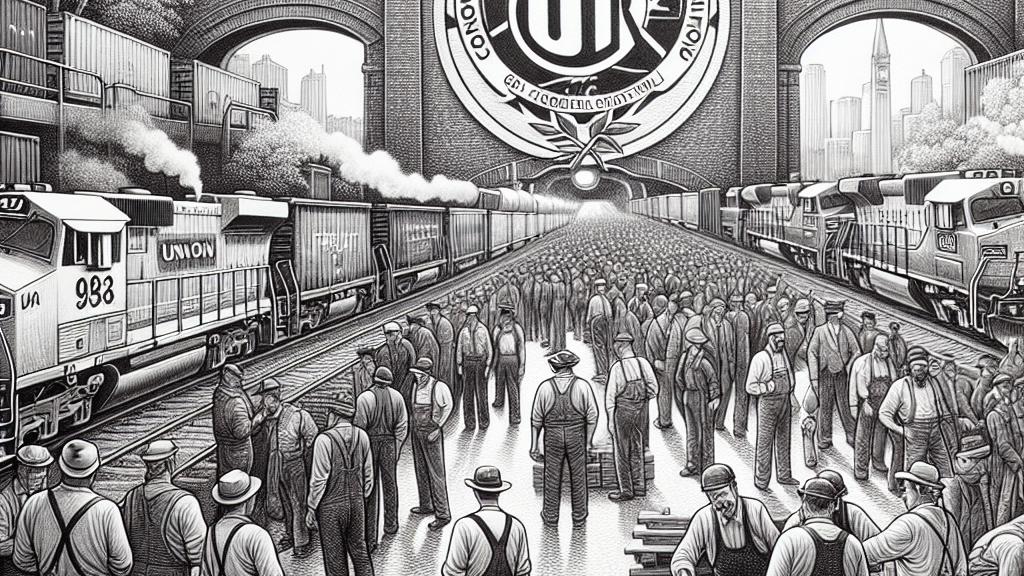Back-on-Track: Canada’s Railroads Resume Service After Labor Dispute Showdown!
Overview
- Arbitrator orders workers back, aiming to stabilize essential rail services.
- Significant economic reliance on railroads underlines urgent need for resolution.
- Teamsters union challenges government intervention, advocating for workers’ rights.

Context of the Labor Dispute in Canada
In August 2024, a pivotal labor dispute struck Canada's major freight railroads, Canadian National (CN) and Canadian Pacific Kansas City (CPKC). This conflict was ignited by a lockout affecting over 9,000 union workers, members of the Teamsters Canada Rail Conference, after failed negotiations surrounding critical scheduling and compensation issues. As railroads are crucial for economic connectivity, transporting goods valued at over CA$1 billion per day, the tensions escalated, prompting widespread concerns about the potential for severe disruptions to trade and the economy, affecting not just Canada, but bilateral commerce with the United States.
Government Action and the Return to Work Order
Facing mounting pressure from businesses and economic stakeholders, Canadian Labour Minister Steven MacKinnon intervened, initiating a back-to-work order through arbitration. This order was designed to restore normal operations as swiftly as possible, emphasizing the necessity of rail services for countless industries relying on timely deliveries. While CN was able to resume transportation services rapidly, CPKC confronted additional hurdles in restoring its operations. The Teamsters union, while mandating compliance with the return order, planned to challenge this government intervention legally, arguing that it significantly infringes upon the rights of labor and undermines their bargaining power.
Economic Consequences and Future of Labor Relations
The labor disruption exemplified the deeply intertwined nature of labor relations and economic stability, serving as a wake-up call for both corporations and unions. Businesses across industries faced interruptions that risked financial losses and operational setbacks due to halted shipments, highlighting the critical role of railroads for supply chains. Future negotiations may require a reevaluation of the balance between corporate influence and labor rights to prevent similar disputes. The ongoing situation underscores the necessity for robust dialogue to address worker demands while ensuring operational efficiency—a crucial step in safeguarding Canada’s economic future and maintaining sustainable labor practices.

Loading...